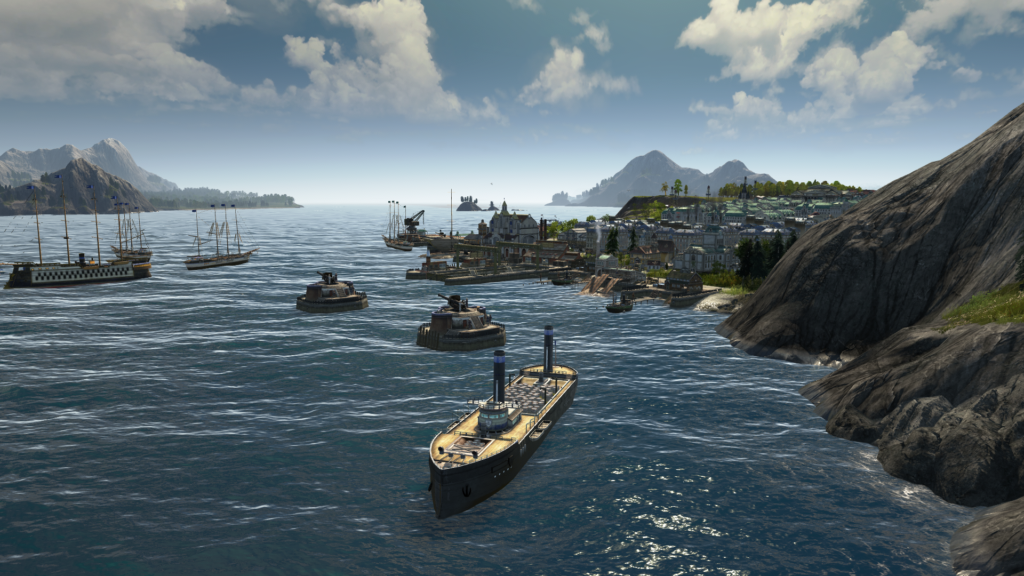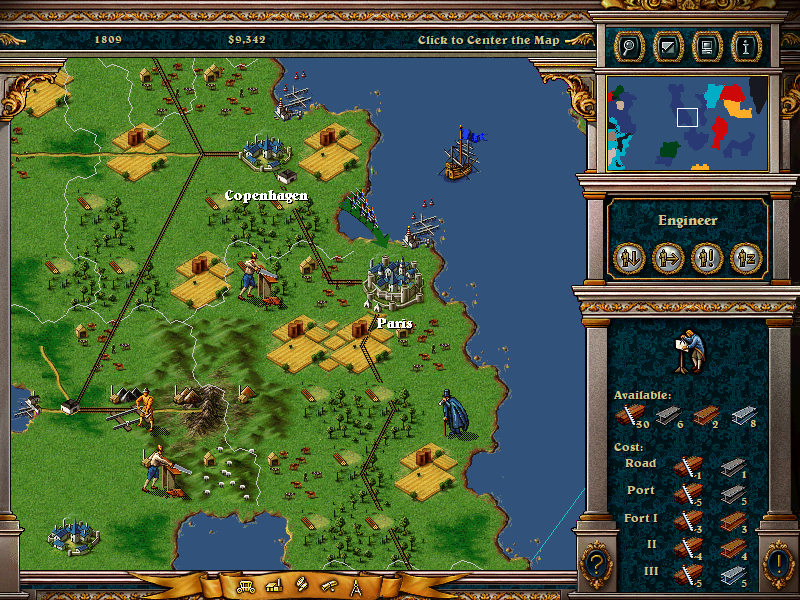
This question popped into my mind while reading Lincoln Paine’s The Sea and Civilization: A Maritime History of the World earlier this year. Navies are important in history; and for the last few hundred years, the world’s leading power has also been a naval power. This is not reflected in historical strategy games such as Civilization, where navies are often optional unless playing on an island map.
I think the answer lies in these games’ economic and resource models. Consider the Civilization series:
- Food, wealth, and industrial production come from working the countryside.
- Cities use a generic “production” resource to build everything from cathedrals to tanks.
- While more recent games introduced strategic resources which can be traded (such as oil), these resources instantly teleport across the map.
The result is that Civ emphasises control of territory and population, rewarding large land empires. There is no equivalent to Ancient Rome’s reliance on Egyptian grain or WW2 Britain’s Atlantic convoys.
In contrast, seapower becomes critical in games with detailed production chains, such as Imperialism and Anno 1800. Their economies run on foods, minerals, and luxuries that are found around the world and shipped home. Navies are necessary to protect transports and cut off enemy trade.
While not every game can be built around a detailed, Anno 1800-style resource model, Empire: Total War offered an elegant solution. Trade was by far the best way to make money in that game; and that relied on sending out a navy to capture and defend trade nodes.
I think the lesson is that seapower matters once players have an incentive to contest the seas. Give sea lanes their historic importance as the arteries of commerce and wealth; and the importance of navies will follow.
